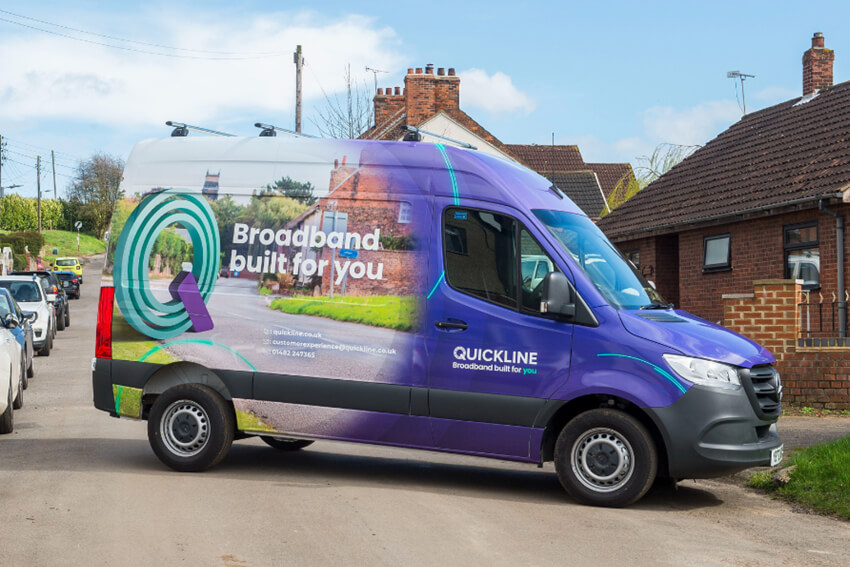
Quickline is a broadband provider invested in a market-leading hybrid network. Utilising fibre and 5g wireless, it provides a reliable, quick and inclusive broadband service to a range of locations and people – including those in rural areas who may struggle to get online otherwise.
Established in 2008, Quickline has grown and built extensive mass infrastructure – acquiring small WISPS to provider services to a range of businesses and rural consumer customers. The company is focused on sustainability, and recognises the impact that technology can have on the surrounding environment.
The Quickline team are always looking for ways to improve their own green credentials, and already have a Carbon Reduction in Place outlining their commitment to achieving Net Zero emissions as early as possible, and at the latest, by 2045.
The management team wanted to know how to make the right positive changes so that they could achieve their ambitious sustainability goals.
To do this, the company needed a clear picture of the environmental impact and emissions of the entire
operations – right back through the supply chain. Whilst the internal emissions (Scope 1 and 2) are
straightforward to tackle – gathering information on supply chain emissions (Scope 3) was raising some serious challenges!
For a broadband provider like Quickline – emissions are generated at every point of the process, from essential manufacturing and installation, to the energy usage associated with providing a constant and ongoing internet service. Gathering accurate information manually would have been a huge undertaking.
The business needed expert support and a solution that could assess the sustainability performance of the entire supply chain. They wanted to include everything from the materials and methods used to manufacture key equipment and infrastructure, to the delivery and transport involved in the physical installation of a broadband connection.

To overcome this challenge, we provided Quickline with our full service package which automatically collects and collates key emissions data – including Scope 1, 2 and 3 – right across the supply chain.
This revealed which areas of the supply chain were the least sustainable, highlighting the operations and
practices that were adversely affecting its overall sustainability performance.
Using these insights, AXIOM are now working with Quickline to create a full ESG strategy which includes
everything from stakeholder mapping to SDG Goals. We are also helping the organisation in developing a full programme of implementations for improvement, whilst continuing to monitor and measure the business’s key emissions.
Advancing our green credentials is a huge priority, and we needed to find a simple, all in one solution which could give us the insights needed to improve sustainability across the supply chain.
We’re grateful for the ongoing support of AXIOM – in addition to helping us track and monitor our environmental impact, they’re also developing a tailored ESG strategy that aligns with our wider sustainability goals.
Mark Seward
Director of FWA Operations and Strategic Programmes


Want to know more? Please get in contact with our team here.
Contact Us